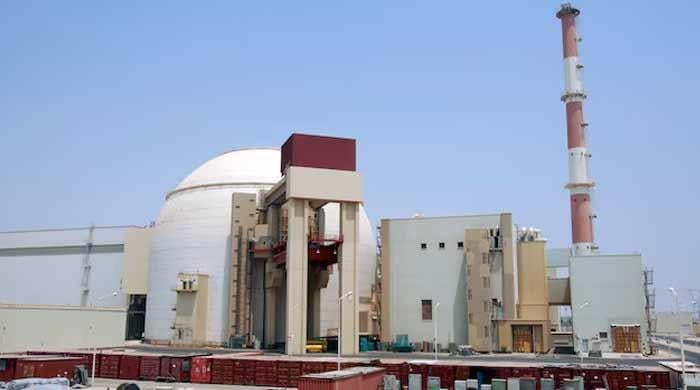
Iran's Nuclear Pact: What Happens Now as Restrictions Expire?
![Iran Nuclear Reactor]()
General view of the Bushehr main nuclear reactor, 1,200 km south of Tehran, August 21, 2010. — Reuters
Introduction
In a significant shift in its nuclear policy, Iran announced that it would no longer adhere to the restrictions set forth by the 2015 Vienna Nuclear Agreement, commonly known as the Joint Comprehensive Plan of Action (JCPOA). As of now, the country is moving away from the limitations imposed on its nuclear program, raising concerns among the international community about the potential implications for regional and global security. This article explores the background of the agreement, the implications of Iran's announcement, and what it means for the future of nuclear diplomacy.
Background on the 2015 Vienna Nuclear Agreement
The 2015 Vienna Nuclear Agreement was a landmark deal negotiated between Iran and six world powers: the United States, the United Kingdom, France, Russia, China, and Germany. The primary goal of the JCPOA was to limit Iran's nuclear capabilities in exchange for sanctions relief, thereby preventing the country from developing nuclear weapons.
Under the terms of the agreement, Iran agreed to reduce its uranium enrichment levels, limit its stockpile of enriched uranium, and allow comprehensive inspections by the International Atomic Energy Agency (IAEA). These measures were designed to provide assurances to the international community that Iran’s nuclear program was solely for peaceful purposes.
However, the deal faced significant challenges over the years, particularly after the United States withdrew from the agreement in 2018 under the Trump administration. This withdrawal led to the reimposition of economic sanctions on Iran, prompting the country to gradually abandon its commitments under the JCPOA.
Iran's Recent Announcement
On a recent Saturday, Iranian officials declared that the country is no longer bound by the restrictions outlined in the JCPOA, citing the expiration of the deal as a key reason for their decision. This marks a significant turning point in Iran's approach to its nuclear program and reflects growing frustrations over the stalled negotiations aimed at reviving the agreement.
Iranian leaders argue that the expiration of the restrictions provides them with the freedom to pursue advancements in nuclear technology, including uranium enrichment. This development raises alarms about the potential for Iran to accelerate its nuclear program and possibly develop nuclear weapons capabilities.
Implications for Regional and Global Security
The implications of Iran's announcement are profound and multifaceted. Here are some potential consequences:
1. Increased Tensions in the Middle East
Iran’s departure from the JCPOA restrictions could heighten tensions in the Middle East, a region already fraught with geopolitical conflicts. Neighboring countries, particularly Israel and Saudi Arabia, may perceive this as a direct threat to their national security and could respond with military or diplomatic actions.
2. Nuclear Proliferation Concerns
The potential for Iran to expand its nuclear capabilities raises concerns about nuclear proliferation in the region. If Iran moves towards developing nuclear weapons, it could prompt other nations in the Middle East to pursue similar paths, leading to an arms race that destabilizes the region further.
3. Impact on Global Diplomacy
Iran's decision to no longer adhere to the JCPOA restrictions complicates efforts by world powers to engage in diplomacy aimed at limiting nuclear proliferation. The breakdown of negotiations could lead to a stalemate, diminishing the effectiveness of international efforts to ensure nuclear non-proliferation.
4. Economic Ramifications
The reintroduction of a more expansive nuclear program could lead to the reinstatement of harsh economic sanctions from the international community. This would further strain Iran's economy, which has already been grappling with the effects of previous sanctions and the ongoing impacts of the COVID-19 pandemic.
The Future of Iran's Nuclear Program
As Iran moves away from the constraints of the JCPOA, the future of its nuclear program remains uncertain. The country has expressed intentions to develop its nuclear capabilities for peaceful purposes, including energy production and medical applications. However, the international community remains skeptical about these claims, fearing that such advancements could be a façade for military objectives.
To mitigate the risks associated with Iran's nuclear ambitions, continued dialogue and negotiation will be crucial. World powers must seek to engage Iran in discussions aimed at establishing new frameworks for nuclear oversight and ensuring compliance with international standards.
Conclusion
Iran's announcement that it is no longer bound by the JCPOA restrictions marks a critical juncture in the discourse surrounding nuclear non-proliferation. The potential consequences of this decision extend beyond Iran, affecting regional stability and global security. As the international community navigates this complex landscape, the importance of diplomacy and dialogue cannot be overstated.
FAQs
1. What was the 2015 Vienna Nuclear Agreement?
The 2015 Vienna Nuclear Agreement, also known as the Joint Comprehensive Plan of Action (JCPOA), was an agreement between Iran and six world powers aimed at limiting Iran's nuclear program in exchange for sanctions relief.
2. Why did Iran decide to no longer adhere to the JCPOA restrictions?
Iran announced it would no longer follow the JCPOA restrictions due to the expiration of the deal and ongoing frustrations over the lack of progress in negotiations and sanctions relief.
3. What are the potential consequences of Iran's announcement?
The consequences include increased tensions in the Middle East, concerns over nuclear proliferation, complications for global diplomacy, and potential economic ramifications for Iran.
4. What should the international community do in response?
The international community should engage Iran in dialogue to establish new frameworks for nuclear oversight and compliance with international standards to mitigate risks associated with its nuclear program.
Tags
World
